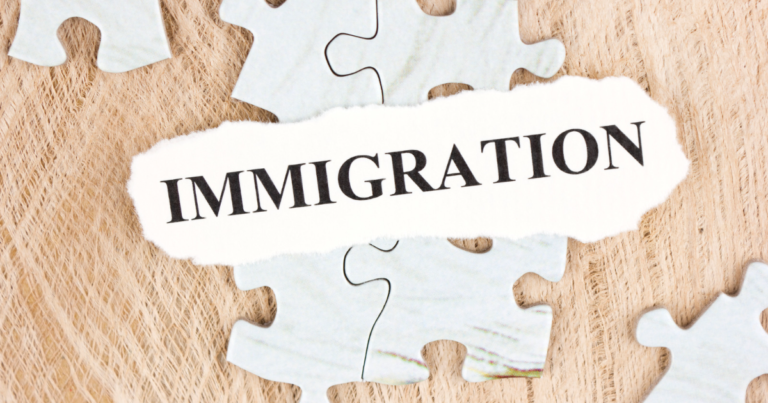De facto unions in Canada's immigration law: what proof should spouses provide?

Immigration to Canada is a process that interests many people around the world. One way to immigrate to the land of the maple leaf is through family reunification. Common-law partners can also benefit from this opportunity. However, it is essential to provide solid evidence to demonstrate the authenticity of your de facto union. In this article, we'll explain in detail how to build a solid case for your application to immigrate to Canada as a common-law partner.
What is a de facto union?
A de facto union is a conjugal relationship characterized by the stable and continuous cohabitation of two people who are not bound by marriage. In Canada, de facto spouses have the same rights and obligations as married couples, as long as they can prove the existence and duration of their relationship.
The differences between marriage and de facto union
Although married couples and common-law partners enjoy the same rights and obligations in Canada, there are several important differences between these two types of union. Here are a few examples:
- Ceremony: Marriage involves an official ceremony with a priest, judge or officiant, while a de facto union has no formal ceremony.
- Legal recognition: Marriage is legally recognized, while common-law relationships are not. However, common-law partners can be recognized as a couple for certain legal purposes, such as immigration, insurance and taxes.
- Assessment criteria: The assessment criteria for immigration are different for married couples and common-law partners. Married couples must provide a marriage certificate, while common-law partners must provide proof of cohabitation, mutual commitment, living together and financial support.
- Tax benefits: Married couples can take advantage of tax benefits such as spousal deductions, while common-law partners cannot.
- Dissolution of a marriage: The dissolution of a marriage requires legal divorce proceedings, whereas a de facto union can be dissolved without legal proceedings.
In short, married couples benefit from automatic legal recognition and certain tax advantages, while de facto spouses must provide proof to be recognized as a couple, and do not enjoy the same tax benefits as married couples. However, both types of union have advantages and disadvantages, and it's important to choose the one that best suits your personal situation.
Criteria for evaluating a de facto union
To be recognized as a de facto union for immigration purposes, your relationship must meet certain conditions:
- Cohabitation: You must have been living together for at least one year without interruption. Temporary absences for professional, family or other reasons are acceptable if they do not exceed a few months and the couple can demonstrate their intention to continue living together after this period.
- Exclusivity: The relationship must be exclusive, i.e. both partners must not be involved in any other de facto unions or marriages.
- Mutual commitment: Common-law partners must be committed to each other, both emotionally and financially. They must share the responsibilities and tasks of daily life, such as paying bills or maintaining the home.
- Shared life: De facto spouses must demonstrate that they share a common life, with shared habits and activities.
Proof of your common-law relationship
To prove the existence of your de facto union, it's important to gather several pieces of evidence. Here is a non-exhaustive list of documents you can provide:
- Proof of cohabitation: bank statements, electricity, gas, water or telephone bills, rental leases or ownership certificates, proof of address, etc.
- Financial evidence: joint bank accounts, mutual life insurance policies, proof of financial support, etc.
- Proof of mutual commitment: Wills, powers of attorney, joint tax returns, proof of travel together, etc.
- Proof of life together: photos of the couple, correspondence, invitations to family or social events, testimonials from friends and relatives, etc.
It's important to stress that the quality of your evidence is paramount. The more precise, complete and consistent your documents are, the easier it will be for immigration officers to determine that your relationship meets the criteria for a de facto union.
How to present your evidence
Once you've gathered all your evidence, you need to present it in a clear and organized way. You can include an explanatory letter that summarizes your relationship and highlights the key elements. It's also a good idea to organize your documents into clear, coherent sections, using tabs or dividers. Don't forget to provide certified translations of any documents not written in English or French.
Steps to apply for immigration as a de facto spouse
- Step 1: Gather the required documents - As mentioned above, you'll need to provide solid evidence of your relationship, including proof of cohabitation, mutual commitment, living together and financial support. You will also need to complete the appropriate application forms.
- Step 2: Submit the application - You'll need to submit your immigration application, along with all required documents and processing fees.
- Step 3: Waiting for a decision - Processing immigration applications for common-law partners can take several months. You'll have to wait for the decision of immigration officers, who may request additional evidence or interviews before making their decision.
- Step 4: Obtain work permit, study permit or permanent residence - If your immigration application is approved, you can obtain a work permit, study permit or permanent residence, depending on your situation.
Mistakes to avoid
It's important to take the time to prepare your immigration application. Here are a few mistakes to avoid:
- Providing insufficient evidence: The more evidence you have, the easier it will be to prove the authenticity of your de facto union. So it's important not to neglect this step. It's important to provide solid proof of the existence and duration of your relationship. Failure to provide sufficient evidence could result in your application being rejected.
- Providing irrelevant evidence: Evidence must be related to your relationship and must demonstrate the criteria for a common-law relationship. Avoid providing documents that are not relevant, such as bank statements from people who are not related to your relationship. Falsifying evidence is a serious offence. It is important to provide only genuine, high-quality evidence to avoid any problems.
- Failure to update your file: If your situation changes during the immigration process, it is important to update your file by providing additional evidence or informing immigration officers of any change in your situation.
- Not meeting deadlines - It is important to meet deadlines for submitting your immigration application and for providing additional evidence if necessary. Failure to meet deadlines may result in delays in processing or rejection of your application.
- Providing falsified evidence: Falsifying evidence is a serious offence. It is important to provide only genuine, high-quality evidence to avoid any problems.
- Ignoring cultural differences - There may be cultural differences between immigration officers and prospective immigrants. It's important to take these differences into account and ensure that your application is understandable and well-organized.
Conclusion
De facto unions can be a viable option for couples seeking to immigrate to Canada. However, it is important to provide solid evidence to demonstrate the existence and duration of your relationship, which can be a complex and tedious process. It's also important to understand the differences between common-law relationships and marriage in terms of immigration, in order to determine the best option for your situation. By providing accurate, complete and consistent evidence, and avoiding common mistakes, you can increase your chances of success in your common-law immigration application.






